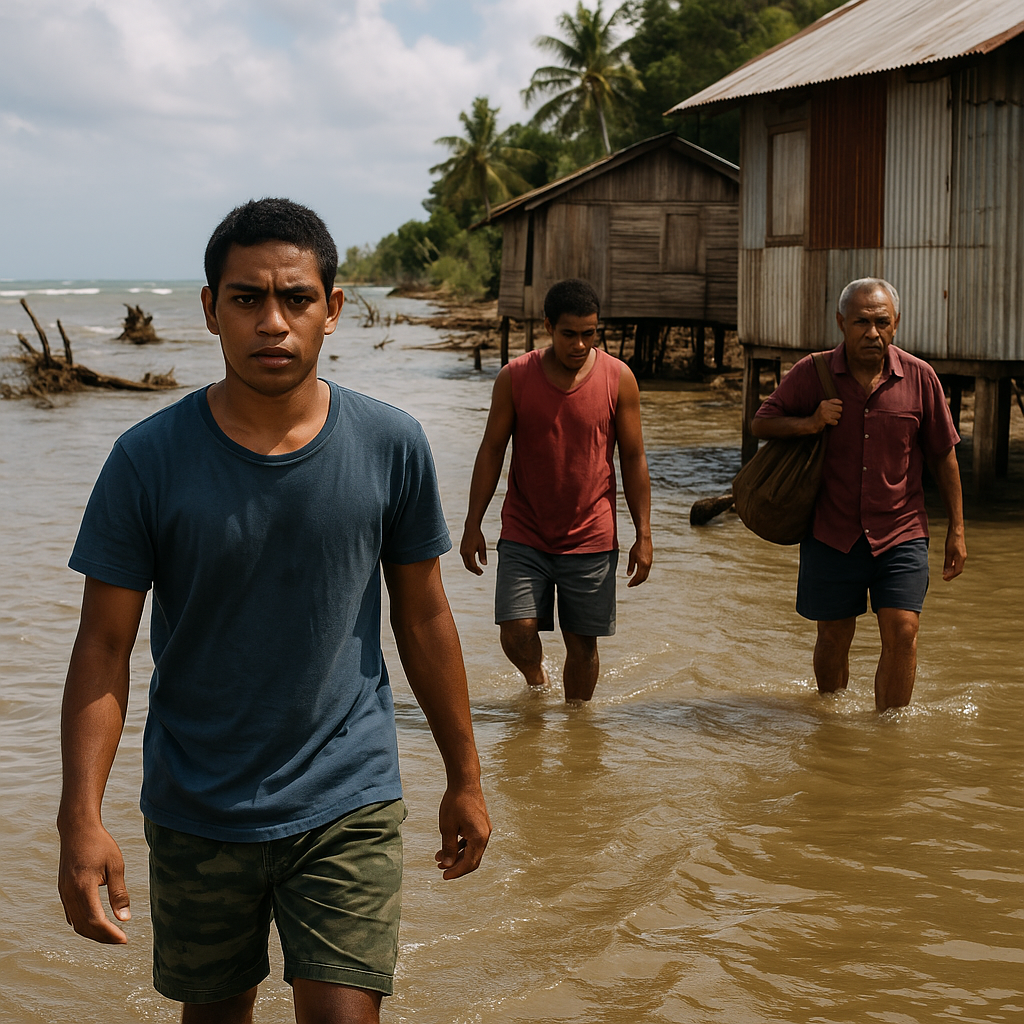AI for Early Warnings: Global Summit Spurs Action to Protect All by 2027
Spearheaded by the World Meteorological Organization (WMO) under the umbrella of the global Early Warnings for All (EW4All) initiative, this collaborative session served as a dynamic checkpoint.

At the AI for Good Global Summit 2025 in Geneva, a pivotal workshop titled "AI Innovation for Early Warnings for All" emerged not just as a showcase of promising technologies, but as a testament to the real-world progress being made toward an urgent global goal: to ensure that every person on Earth is protected by life-saving early warning systems by 2027.
Spearheaded by the World Meteorological Organization (WMO) under the umbrella of the global Early Warnings for All (EW4All) initiative, this collaborative session served as a dynamic checkpoint. It revealed how artificial intelligence, when responsibly harnessed, can revolutionize how nations—especially vulnerable and low-resourced ones—prepare for and respond to climate-related hazards.
From Possibility to Progress: AI’s Role in Early Warning Systems
In partnership with the International Telecommunication Union (ITU), United Nations Office for Disaster Risk Reduction (UNDRR), and the International Federation of Red Cross and Red Crescent Societies (IFRC), the workshop united practitioners, technologists, humanitarian responders, and policy leaders in a shared mission: moving from innovation to implementation.
Dr. Johan Stander, Principal Director of WMO’s Services Department, opened the session with a call to action. His message was clear: the climate crisis demands tools that not only predict but also empower. Artificial intelligence, if scaled responsibly and inclusively, can bridge operational gaps, accelerate response, and save lives.
Session 1: Addressing Gaps That Cost Lives
The first session highlighted findings from the EW4All AI Sub-Group, drawing insights from each pillar organization. Erica Allis, Chief of Partner Engagement at WMO, emphasized the need to make complex scientific data more accessible and usable through AI-driven models. She stressed that advanced forecasting tools must be available to all users, regardless of technical literacy or geography.
UN agencies and academic institutions unveiled pilot projects aimed at simplifying data modeling, enhancing risk communication, and leveraging AI to improve forecast accuracy. The projects also spotlighted the need for inclusive design, ensuring that even the most marginalized communities benefit from technological advances.
Session 2: Local Solutions, Global Impact
The second session of the workshop spotlighted finalists from the AI for EW4All Innovation Challenge, showcasing how bottom-up innovation is transforming early warning systems in real, tangible ways. The featured projects included:
-
Bibliotechies: A tool that enables responders to act before floods strike, rather than after.
-
DARAJA: An AI-powered emergency alert system improving access to warnings for underserved communities in Sudan and Ethiopia.
-
Ignitia: A hyperlocal weather forecasting platform tailored for climate-vulnerable regions.
-
DESTSAJ: A solution ensuring that early warnings in Bangladesh are not only delivered but also understood and acted upon.
Each innovation is rooted in local need—from linguistic inclusivity to infrastructure challenges—and exemplifies the role of AI in bridging global goals with local realities.
Session 3: Embedding AI Into Operational Systems
The final session explored how global tech leaders are working to integrate AI into existing systems used by communities and governments. Partners such as Google and Microsoft shared operational platforms that use satellite data, machine learning, and AI modeling to map digital blind spots, forecast floods, and disseminate alerts in real time.
These were not prototypes, but active systems already being deployed. Yet speakers cautioned that successful implementation depends on local partnerships, especially with agencies responsible for disaster risk management and meteorological services. AI models, they emphasized, must be grounded in context-specific data and informed by community engagement.
The session also stressed the importance of capacity development. Providing a technological tool without supporting the people who use it risks failure. From data literacy to system maintenance, ensuring long-term sustainability is as vital as innovation itself.
Key Takeaways: AI Must Be Human-Centered
A recurring theme throughout the workshop was the need for trust, inclusion, and human judgment. AI is a powerful tool, but not a replacement for expertise. The most effective early warning systems will be those developed and operated by experts who understand both the capabilities and limitations of AI—and who prioritize the safety and dignity of those they serve.
The workshop closed with a powerful consensus: the tools are ready, the urgency is real, and the global community must act. As the world races toward the 2027 target set by the UN Secretary-General’s Early Warnings for All initiative, events like this offer not just inspiration, but a blueprint for action.
From Sudan to Bangladesh, from innovation labs to frontline responders, the message is clear: early warning saves lives—and AI can help make that protection universal.










